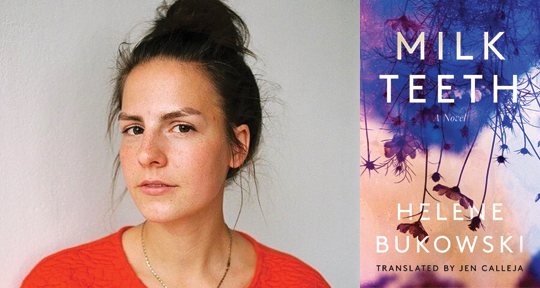Die Zehnte Muse (The Tenth Muse), published by Steidl in 2020, is a genre-bending novel set in the Black Forest in the late nineteenth and early twentieth century. The story focuses on two main characters, Algernon Blackwood and Paul Severin. Blackwood is modelled on the twentieth-century supernatural author of the same name, well known for his short stories “The Willows” (1907) and “The Wendigo” (1910), while Severin is modelled on the German expressionist painter Karl Hofer. The novel centres on the mystery of Talitha, a timeless figure both men develop fixations on, twenty years apart, after glimpsing her in the forest.
Pechmann deftly weaves together strands of philosophy and layers of storytelling in under two hundred pages. On some levels, the book feels like a classic gothic ghost story. There are all the major elements: a forest; restless, disillusioned young men; a creepy, strict religious boarding school; a supernatural presence. But the book also covers the nature of time, dreams, spiritualism, and the occult, the psychological, Gnosticism, art history, translation, and Yenish culture. The Yenish are a nomadic people from central Europe, whose distinct culture emerged in the early nineteenth century, although the Yenish language predates this. Here, Pechmann discusses the many-layered novel and the enduring mystery of Talitha.
Anna Rumsby (AR): How would you classify this genre? I’m tempted to say neogothic, but it’s also a fairy tale, historical fiction, a semi-biography, and in some places almost a philosophical essay.
Alexander Pechmann (AP): In some reviews, the book was called a “Künstlerroman” (art novel) or a psychological ghost story. That’s OK, but I like to call it—as well as my other novels—a “spiritual adventure” or “adventure of the soul,” in contrast to “adventures of the mind,” such as detective stories or science fiction, or “adventures of the heart,” such as stories about love and relationships.
Adventures of the soul are rooted in dreams and make use of ancient traditions, fairy tales, superstitions, and religious ideas. Algernon Blackwood and Arthur Machen wrote this kind of fiction, and Blackwood also had a certain love for symbolistic paintings. Symbolism had a strong influence on me while I was working on the novel, but I feel also close to the Romantics with their deep love for nature, and classic Austrian writers like Leo Perutz who mixed historical facts with fantasy.
AR: How did your experience as a translator and linguist inform this novel? There’s a huge attention to language—I’m thinking specifically of the Bible translation chapter regarding Talitha, but there’s a great blend of English, German, French, and Yenish throughout.
AP: I have a special interest in writers who move freely between cultures and languages. I’m thinking of Lafcadio Hearn, who was born in Greece, grew up in England, went to the USA, and ended up in Japan, or Marmaduke Pickthall, who went to Syria as a young man and would be the first English translator of the Holy Quran. Algernon Blackwood spoke German and French fluently and was also a traveller between cultures. The attention to language in Die Zehnte Muse grew naturally out of the fact that the school of the Moravian Brothers in Königsfeld was and still is visited by students from all over the world. Also, the Black Forest, the background of the novel and place where I live, has always been a melting pot of different languages, dialects, and cultures. While working on the novel, I learned more about Yenish and was astonished that this language uses both Hebrew and Yiddish words. This fit in perfectly with my idea that Talitha was accepted by the Yenish, even though she obviously came from some other ancient culture.
AR: Who or what is Talitha?
AP: In my first draft, she was just a wild child, living in the forest. I knew she was somehow related to the Yenish, so I was searching for typical Yenish names. I liked Talisha or Talitha best, and then I read the story of a priest’s daughter named Talitha who was raised from the dead by Jesus. This opened up new possibilities for my story. Could someone who was resurrected by Jesus grow old and die like a normal person? What if this girl was damned to live on and on? I do not answer this question in the novel and leave it up to the reader to decide whether she was just a lost Yenish girl, the ghost of a murdered girl, or the resurrected biblical Talitha. She might also just be a fantasy of Paul Severin, she might have stepped right out of Maurice Denis’s painting, or she could be even an incarnation of time itself. READ MORE…


